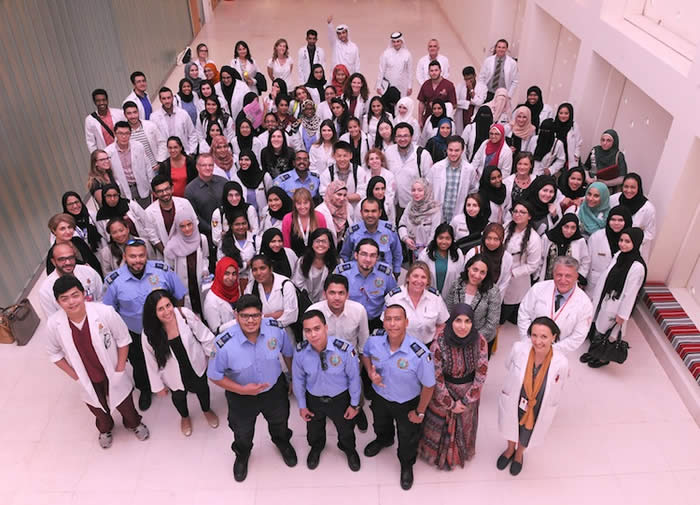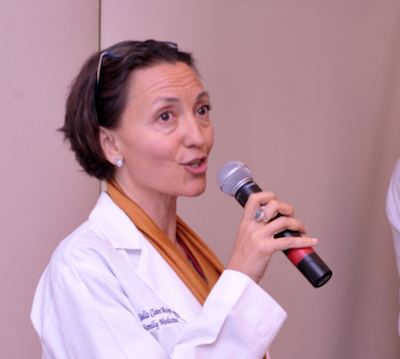Healthcare colleges team up for patient safety
June, 2015

Students from four healthcare colleges learned from each other in order to improve patient safety.
Four of Qatar’s leading medical education institutions came together to hold a workshop designed to improve patient safety.
Weill Cornell Medical College in Qatar (WCMC-Q) and Qatar University’s College of Pharmacy collaborated in organizing the Interprofessional Education (IPE) workshop, entitled Being an Effective Team Player. They partnered with University of Calgary in Qatar and College of the North Atlantic in Qatar.
The event brought together 112 students from six different healthcare disciplines – nursing, pharmacy, medicine, pharmacy technician, medical radiography and emergency medical science. The aim was to teach them how to be an effective team player and how to communicate effectively with other health professionals, thereby preventing errors when in a real-life medical situation.
The workshop, that was the biggest IPE event to date, was co-facilitated by Alla El-Awaisi, IPE chairperson and assistant dean at Qatar University’s College of Pharmacy. She said that being an effective team player is essential in ensuring patients stay safe and mistakes are not made.

The event was co-organized by Dr. Stella Major, associate
professor of clinical medicine at WCMC-Q.
Mrs El-Awaisi said: “The lessons they learn today will be reflected in their dealings with other healthcare professionals in the future. We are already working hard to integrate IPE experiences within our curriculum at Qatar University, preparing our graduates for the real-life experiences they will encounter in hospitals. Ultimately, this will be of huge benefit to their patients.”
IPE is defined as two or more professionals learning from each other at the same event, with a view to improving the overall quality of their work. While at the IPE workshop, which was held at WCMC-Q, students learned how to make collaborative decisions, the scope of each other’s jobs, and how to communicate with each other clearly and concisely. Through the use of real-life scenarios and simulations the students also learned what they should not to, and how human error could be avoided in life-threatening medical emergencies.
Dr. Stella Major, associate professor of clinical medicine at WCMC-Q who also co-facilitated the workshop, said collaborative events like this improve understanding and teamwork among healthcare professionals, reducing the chance of mistakes and giving individuals the confidence to speak out.
She said: “In practice we all work alongside each other, so as the trainees are learning, they can begin to learn together and develop comfort with discussing how human-factor errors may lead to poor patient outcomes.”
At the end of the workshop, students’ reactions to the scenarios they had seen were gauged through a series of questions.
Amani Al Haddad, a 2nd year student at the College of Pharmacy said: “Today’s event involved miscommunication between the healthcare team with the result that the patient died from liver failure. I learned so much at this event and want to incorporate this learning into my upcoming internship this summer at the hospital with multidisciplinary professionals. These events are making us, as students, better prepared to work as a team.”
WCMC-Q Med 1 student Shaikha AlQahtani said that the event served to increase her appreciation of the work of all health professionals and the respect they receive for being on the frontlines of patient care.
